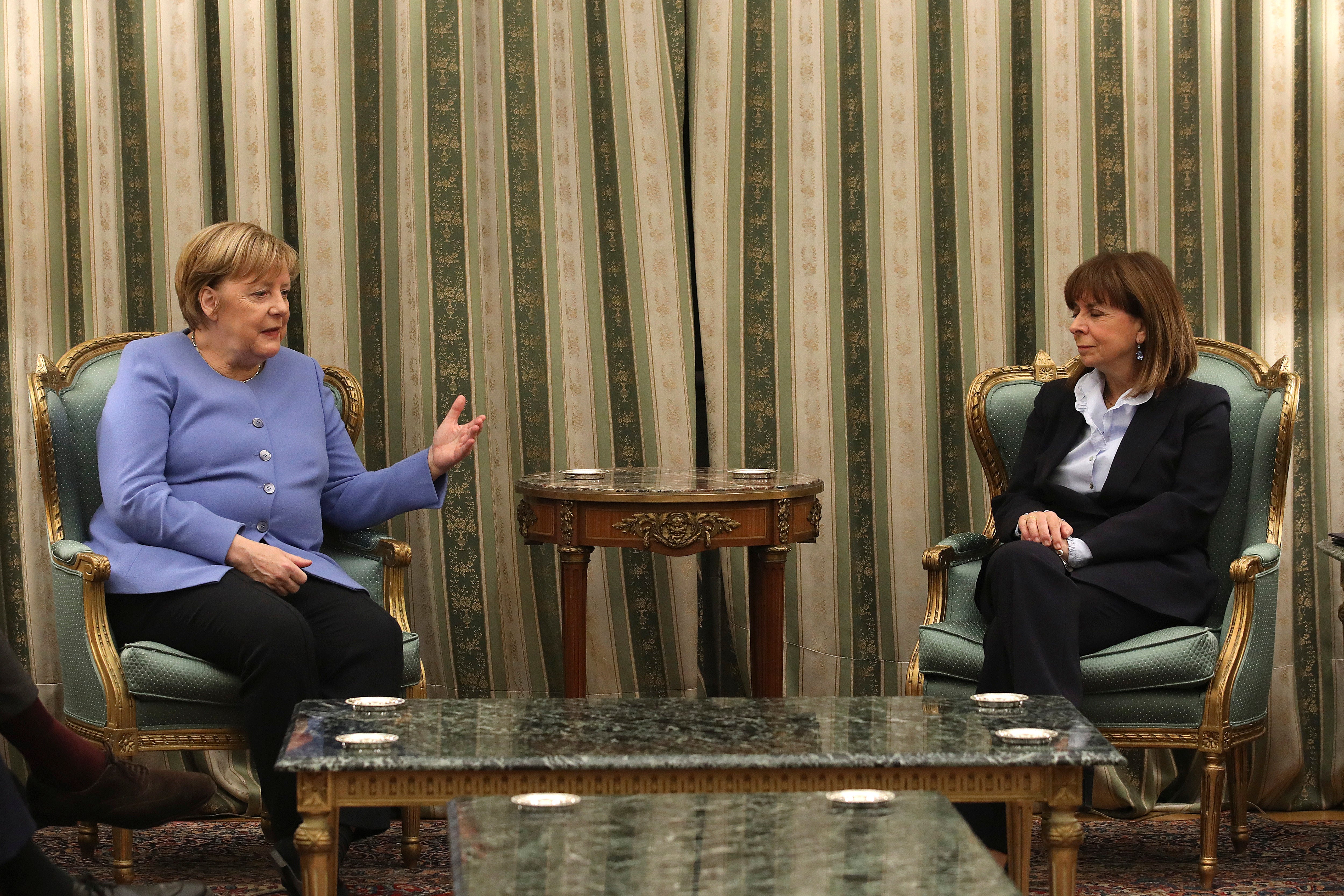Greek president to Germany's Merkel: Greece often felt alone
Greece’s often-strained relations in past years with European economic powerhouse Germany have taken center stage in a meeting in Athens between outgoing German Chancellor Angela Merkel and Greece’s president

Your support helps us to tell the story
From reproductive rights to climate change to Big Tech, The Independent is on the ground when the story is developing. Whether it's investigating the financials of Elon Musk's pro-Trump PAC or producing our latest documentary, 'The A Word', which shines a light on the American women fighting for reproductive rights, we know how important it is to parse out the facts from the messaging.
At such a critical moment in US history, we need reporters on the ground. Your donation allows us to keep sending journalists to speak to both sides of the story.
The Independent is trusted by Americans across the entire political spectrum. And unlike many other quality news outlets, we choose not to lock Americans out of our reporting and analysis with paywalls. We believe quality journalism should be available to everyone, paid for by those who can afford it.
Your support makes all the difference.Greece’s often-strained relations in past years with European economic powerhouse Germany took center stage in a meeting in Athens Friday between outgoing German Chancellor Angela Merkel and Greece’s president.
Katerina Sakellaropoulou was Merkel’s first official meeting during her visit to the country whose financial crisis marked much of her 16-year tenure and Germany’s relationship with Europe.
“There were times of difficulty and tension,” Sakellaropoulou told Merkel, referring to their two countries’ relations. “The financial crisis that many countries of Europe faced put mainly Greece, which was called on to pay a heavy price, in a difficult position. It was an unprecedented situation ... and Greece felt — we justifiably often felt alone.”
Greece’s decade-long financial crisis, which began in late 2019, saw a quarter of the country’s economy wiped out and Greece almost crashing out of the euro, the joint currency used by many European Union members.
Germany was the largest single contributor to three successive international bailout packages Greece received from 2010 to 2018.
But the rescue loans came with strings attached. Greece’s economy was put under strict supervision and a series of deeply resented reforms were imposed, including repeated tax hikes and cuts in pensions, salaries and public spending for everything from health care to infrastructure.
While the Greek economy had suffered years of poor management and the overspending of public money which contributed to its dire financial predicament and triggered the crisis, the terms imposed in return for the rescue were particularly harsh.
Many Greeks blamed Merkel — and her finance minister Wolfgang Schaeuble — for the enforced austerity which led to plummeting living standards and an economic depression. At one point the jobless rate reached 28%, with youth unemployment exceeding 60%.
But as the country’s financial situation gradually improved, so too did relations with Germany, and the general public sentiment toward Merkel herself.
“I believe that the time that has passed and the experiences we lived through during this period contributed to mutual understanding and the drawing of useful conclusions for the present and the future,” Sakellaropoulou said. “It is important that Europe maintained its cohesion, and this was shown in its handling of the pandemic and in the Recovery Fund.”
Merkel responded to the Greek president that “you referred to our relations which went through some ups and downs, but are based on strong foundations. Dialogue was always the key to searching for and finding a solution.”
She said there had been varied challenges, including the destabilization of the euro currency “and the reforms that had to happen in all countries and in Greece,” and also touched briefly on the migration issue for Europe.
“What gave us strength in this period was the fact that we always had the feeling we belong together,” Merkel said. “And I believe this is the basic feeling we must have.”
After her meeting with Sakellaropoulou, Merkel headed into talks with Greek Prime Minister Kyriakos Mitsotakis, at whose private residence she dined Thursday night after arriving in Athens.